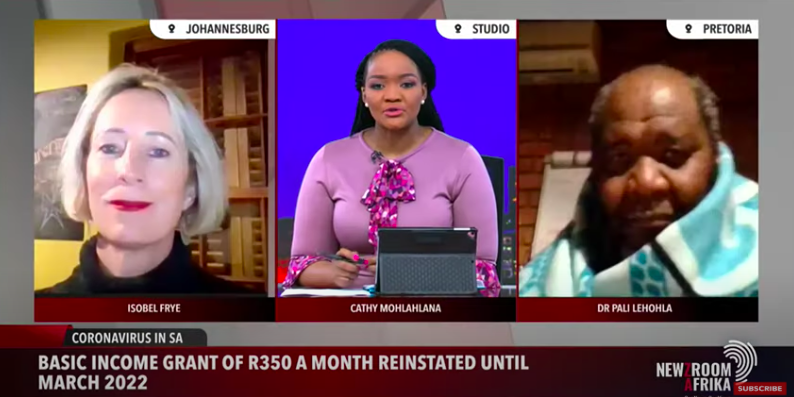Newzroom Afrika: Government reintroduces R350 Social Relief Grant, discussion with Isobel Frye and the urgency of a Basic Income Grant


“This is the time when political will comes forward, the vision that we have for a Decent Standard of Living is affordable and doable.’ – Isobel Frye highlights.
Based off of the previous implementation of the Social Relief of Distress grant (SRD), there was an increase in mental health. People had the opportunity to not worry about where they would obtain their next meal. The Social Relief of Distress put the basics on people’s tables, overall morale of the communities had increased, the removal of the SRD grant, however, impacted people’s desperation. When the SRD grant was removed, women were facing depression as the pressure of caregivers having to put food on the table. The impact was profound.
“R350 is far behind the poverty line, yet it makes a significant difference” - Dr Pali Lehohla, former Statistician of Statistics South Africa voices.
Isobel Frye dived into the discussion of the government’s response, she said that she does have concerns that the country’s primary aim is not to take care of the citizens first.
She outlines that after the second World War, in Europe, people were able to look after themselves and engage in economic activity again, because they had social security.
A Basic Income Grant will start creating opportunities, R350 is still not enough to meet basic food needs. Our country has faced 10 years of recession long before the Covid-19 pandemic started, we want to see new ways of catalysing growth. We are looking at townships and rural communities.
If the state is able to make the commitment to a Basic Income Grant, we could look at development within the country.
“This money, however small, becomes investable.” – Dr. Pali adds.
Isobel talks about the political view of the grants, and sees this as being an incredibly important part of our democratic project.
This is not a poor issue; this is a democratic project issue.
This policy needs to be adopted and embraced.
Source: Newzroom Afrika